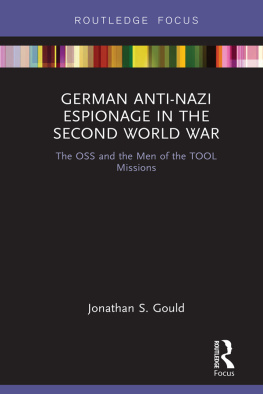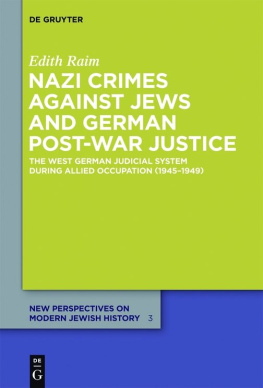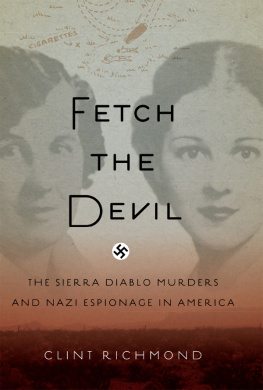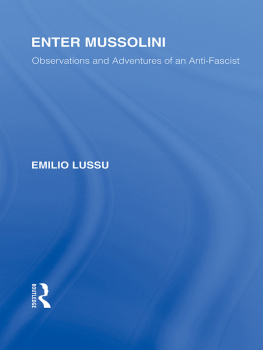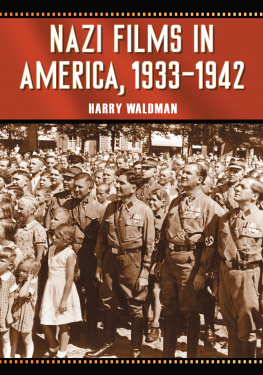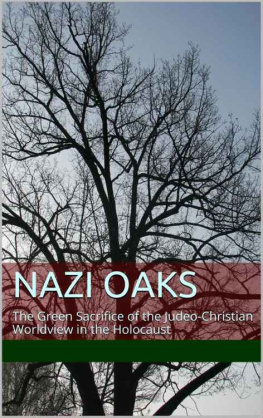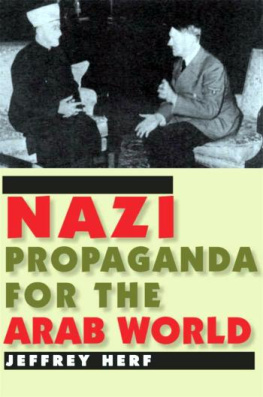German Anti-Nazi Espionage in the Second World War
This book tells the dramatic story of the recruitment and training of a group of German communist exiles by the London office of the Office of Strategic Services for key spy missions into Nazi Germany during the final months of World War II. The book chronicles their stand against the rise of Hitler in the 1930s that caused them to flee Germany for Czechoslovakia and then England, where they resettled and awaited an opportunity to get back into the war against the Nazis.
That chance would arrive in late 1944 when the OSS recruited them for important missions that became part of the historic German Penetration Campaign. Some of the German exiles carried out successful missions that provided key military intelligence to the Allied armies advancing into Germany while others suffered untimely deaths immediately upon the dispatch of their missions that still raise troubling issues. In addition, a few betrayed the trust that the OSS had placed in them by collaborating with a Soviet spy network in England and secretly disclosing top secret OSS sources and methods used to carry out the German Penetration Campaign missions. These dual loyalties, however, did not prevent the United States military from awarding these men military decorations, which have been confirmed as the first such medals awarded to German nationals for their service to the Allied armies in World War II.
Jonathan S. Gould is a former New York City schoolteacher and curriculum writer. He is now an attorney admitted to practice law in the federal and state courts of New York specializing in commercial litigation.
Routledge Focus on the History of Conflict
The history of war and warfare often contains events and episodes that in themselves took place over a relatively short period of time but which have developed wider historical resonance. This series of books, part of the Routledge Focus series of short form volumes, usually somewhere between the average length of a journal article and a monograph, sheds a light on key topics within the history of conflict taking a broadly international perspective and with all eras represented.
German Anti-Nazi Espionage in the Second World War
The OSS and the Men of the TOOL Missions
Jonathan S. Gould
First published 2019
by Routledge
2 Park Square, Milton Park, Abingdon, Oxon OX14 4RN
and by Routledge
711 Third Avenue, New York, NY 10017
Routledge is an imprint of the Taylor & Francis Group, an informa business
2019 Jonathan S. Gould
The right of Jonathan S. Gould to be identified as author of this work has been asserted by him in accordance with sections 77 and 78 of the Copyright, Designs and Patents Act 1988.
All rights reserved. No part of this book may be reprinted or reproduced or utilised in any form or by any electronic, mechanical, or other means, now known or hereafter invented, including photocopying and recording, or in any information storage or retrieval system, without permission in writing from the publishers.
Trademark notice: Product or corporate names may be trademarks or registered trademarks, and are used only for identification and explanation without intent to infringe.
British Library Cataloguing-in-Publication Data
A catalogue record for this book is available from the British Library
Library of Congress Cataloging-in-Publication Data
Names: Gould, Jonathan S., author.
Title: German anti-Nazi espionage in the Second World War : the OSS and the men of the TOOL missions / Jonathan S. Gould.
Other titles: OSS and the men of the TOOL missions
Description: 1st edition. | Abingdon, Oxon ; New York, NY : Routledge, [2019] | Series: Routledge focus on the history of conflict | Includes bibliographical references and index.
Identifiers: LCCN 2018022500 | ISBN 9781138610736 (hardback : alk. paper) | ISBN 9780429465628 (e-book)
Subjects: LCSH: United States. Office of Strategic ServicesBiography. | Gould, Joseph, 19151993. | World War, 1939 1945Secret serviceUnited StatesBiography. | World War, 19391945Secret serviceGermanyBiography. | Ruh, Anton, 19121964. | Lindner, Paul, 19111969. | Gruber, Kurt. | EspionageGermanyHistory20th century. | World War, 19391945Military intelligenceUnited StatesBiography.
Classification: LCC D810.S7 G648 2019 | DDC 940.54/8673092331dc23
LC record available at https://lccn.loc.gov/2018022500
ISBN: 978-1-138-61073-6 (hbk)
ISBN: 978-0-429-46562-8 (ebk)
Typeset in Times New Roman
by Apex CoVantage, LLC
The publication of this manuscript marks the end of a long journey that actually began in the spring of 1993 during a difficult time in my life. This was because my father Joseph Gould had just received a diagnosis of lung cancer that would take his life three months later. He was 78 years old and living in Washington, DC at the time. I was visiting him from my home in New York City. On a cool spring day, we were having lunch in my sisters house. We were talking about his wartime service in the Office of Strategic Services during World War II. Although I had knowledge of his work in the OSS, I was not aware of its historical significance nor of the men he recruited for these important spy missions from the German exile community in London in the fall of 1944.
One other moment during that conversation rekindled my interest in revisiting my fathers work with the OSS. That was his disappointment in not receiving the recognition that he felt he deserved for his wartime service with the OSS. Part of this sense of disappointment may have stemmed from the fact that he never received the Bronze Star that senior military officers of the OSS in June 1945 had recommended that he be awarded by the US military. I first became aware of this fact in 2008 when the CIA declassified this medal recommendation together with the order of the War Department in 1946 that the award be made. While he did mention in a memoir of his wartime service he wrote in 1988 that he was aware that a decision had been made to award him the Bronze Star, he never actually received it during his lifetime. But in the fall of 2009, with the assistance of Congressman Charles Rangel of New York, I was able to successfully petition the US Army Military Awards Branch for the posthumous award of this medal. Three months later, I was presented with the Bronze Star by Congressman Rangel at a ceremony held in his Harlem office.
When this conversation with my father took place in April 1993, I had no idea that he had never been presented with the Bronze Star. I have no recollection of him mentioning this while growing up in Great Neck, Long Island. But I was deeply moved by the feelings he shared with me that day. After he passed away in July 1993, I privately vowed to reexamine what I knew about his OSS service and to take whatever action was necessary to have the story of his unique wartime service become more widely known.
I was able to achieve this objective with the publication of an article that I wrote in 2002 and which was published in the historical journal of the Central Intelligence Agency


